
Iain Archer: “I’m very happy going into a room with four or five individuals that I don’t know and start playing.”
Meet the Northern Irish songwriter-producer, Snow Patrol guitarist and award-winning collaborator with the likes of James Bay and Jake Bugg
Iain Archer is a singer–songwriter, producer and musician from Bangor in Northern Ireland, whose music career turned from solo artist in the 90s, to pivotal member of post-Britpop band Snow Patrol and supergroup Tired Pony, before developing into an award-winning behind-the-scenes songwriter. As well as winning an Ivor Novello award in 2005 for co-writing Snow Patrol’s breakthrough album Final Straw, Iain won an Ivor with James Bay for Hold Back The River in 2016 – which was also nominated for a Grammy – and an Ivor nomination for Two Fingers, which he wrote with Jake Bugg.
Iain continues as a member of Tired Pony – a group comprising Snow Patrol’s Gary Lightbody, Peter Buck and Scott McCaughey of R.E.M., Belle and Sebastian’s Richard Colburn, Jacknife Lee and Troy Stewart – and one of his most recent collaborations included co-writing When I’m In Need with Liam Gallagher for his 2017 solo album.
When Songwriting heard that Iain would be joining the Pro7ect 2018 songwriting retreat in Brighton, we jumped at the chance to have an in-depth chat with him…
You’ve got quite a fluid role in the music-making process. What’s your main responsibility at the moment?
“Yeah, I do a lot of things, but songwriting comprises a fair chunk of it. Production is a chunk of it as well, and teaching.”
How about when you were in Snow Patrol?
“The band formed in Dundee and I’d been making a lot of music in Belfast with a guy called Jonny Quinn who was a drummer, and I was a guitarist. We played in a number of different bands together in Belfast, but then Jonny left to move to Dundee and play with Snow Patrol, who were before that called Shrug and then Polarbear. So it was a kind of band in the making. I’d moved to Scotland as well and I’d signed a deal, made two records and toured extensively with my own stuff.”
What made you move to Scotland?
“I think I just needed a break. I’d finished university, I had a clutch of songs and kind of wanted to take a break from Belfast and do something different. There was no real industry draw. I knew people in Glasgow and it seemed like a cool next port of call. And it actually turned out to be a really effective move because I signed a deal and made records in Scotland, but those two things were completely unrelated in a weird kind of way.
“With the Snow Patrol thing, Jonny had gone over, I’d made those two records and at one point – when they’d made the second record – they had made a slightly more ambitious record that was a bigger sounding thing than a three-piece that they were. So I think I got a call before playing a live show on MTV2. It was literally like, ‘Can you show up tomorrow and play the set?’ But Jonny and I had spent enough time together that he knew I could show up and handle that. So the first couple of things I did were TV appearances with the band, playing live with no rehearsal and, at that point, the band were like, ‘You’re in, aren’t you, you’re playing with us now!’
“So we were touring, but when we finished up there was a definite sense in the band that, writing-wise and sonically, there was somewhere they wanted to take things. Things were moving in a much more songwriterly direction and less conceptual – still Snow Patrol, but Final Straw being the end result, with a more direct and poppier frame. I’d been working in more traditional, singer-songwriterly approaches, so it was good melding and timely team-up, in that sense.”
You were working as a solo singer-songwriter up until that point?
“Predominantly, yeah, I’d been in Glasgow and moved to London, I was touring and opening up for John Martyn and Nils Lofgren, and a lot of different, established ‘rock gods’, basically. That was a brilliant time for inspiration, to spend time around artists like that. I made two records, did a load of openers, played a few shows, and had a certain amount of Radio One success with songs off those records. I’m a guitarist as well, so that’s another thing that ends up happening now and again. It’s not the mainstay of what I’ve done, but I ended up touring with a bunch of people as well.”
Looking at the credits on Final Straw you co-wrote Run, Ways & Means and Somewhere A Clock Is Ticking. How were you brought into to the fold as a songwriter?
“It’s kind of hard to recall, to be honest! We started creating those songs on the road while we opening up for Ash. The songs came out of… one person would play one thing, one person would play another, one thing might become a vocal melody… Basically we got to the point where we were on that tour and sound-checked a million times, so we’d start playing new material that wasn’t even fully formed, and started refining it. It was an unbelievable way to actually create and write those songs, because you’re in massive rooms and playing through huge sound systems. You’d have 25-minute to half an hour windows where we might take 15 minutes of that to blast out new stuff, and you’d learn a lot from that. So by the end of that tour we’d been road-testing Run and Somewhere a Clock Is Ticking. Gary and I, both being singers, were very much singing together at that point, so that was informing the anthemic nature of things, with the environments we were writing in. It was classic ‘band songwriting’ but when you’re a songwriter who sings and plays as well, you’re bringing that to the fore. Generally, that was happening with five people, either on a stage or in a room, and you’d be throwing ideas on top, into the mix. It’s a nice way to work and I really enjoy that now because I work, periodically, with full bands like The Strypes, Sunset Sons and The Magic Gang, and I’m very happy going into a room with four or five individuals that I don’t know and start playing. It’s a great testing ground.”

Iain Archer: “I think my role is to provoke things to happen … I want to create focus on what people are trying to do.”
In that dynamic, where you might have a lot of strong personalities in the room, do you assert yourself as a leader to push things along, or do you aim to provide more subtle guidance?
“In those environments, I think my role is to provoke things to happen. It’s not a confrontational thing. I know people who work that way, very well: they create massive amounts of tension and that can generate a reaction. But that’s not really what it’s about, it’s more that I want to create focus on what people are trying to do. A lot of the time, it’s about conversations where I’ll be saying, ‘I’m not sure the target you have in your head – for this band and this record – is the target you’re actually aiming at, at the moment.’ I’m trying to harness where people want to go, what they want to do and what they want to say, and then go, ’If you want to do that, I’m going to push you down that track.’ It might not always be that comfortable, but a lot of the time it really demands people to be a lot more personally than they might initially imagine, especially rock band songwriting. Songwriting in general demands an open-heartedness and exposure, so that does require you to cajole and encourage, all at the same time, to get that stuff out. So that’s been the path the whole way through: to try to push things in a more personal, more open-hearted, more direct way and not be afraid to let those things out. A lot of songwriters, especially in bands, have an awful lot to hide behind – it’s not necessarily the sort of thing that you let slide.”
How did your relationship with Snow Patrol finish?
“I mean, it didn’t finish; I carried on, occasionally, playing with the band. But I think I’ve always had a sense of my own autonomy, to a certain extent, coming through as singer-songwriter and being in charge of my own destiny from the outset. In a band, you’ve got to lay an awful lot of that autonomy down, so there was a certain sense of that. Actually events worked out really gently and smoothly between all of us: I moved on, signed a deal with PIAS and went onto make solo records; the band went on with Nathan [Connolly], who’s a really great mate… So the whole thing was very fluid, but there was definitely a sense of: I’m not sure I can be a touring member of this outfit. I probably need more space to move.”
Were you conscious that the band was about to be huge and got off the rollercoaster, before everything got too crazy?
“I don’t really know how to answer that directly. I guess the interesting thing – if you look throughout my songwriting past – is that I end up getting involved with people at very critical, breakthrough stages, and I tend to be that person who’ll provoke that response and galvanise a directness. I’m a character that tends to be in and out of situations, as opposed to being a permanent member. I mean, I wouldn’t say I’m part of any permanent creative partnership. Not that I’m necessarily against that, but they’re all fluid partnerships, which is great, but that seems to be the thing – without consciously setting out to be that – that happens effectively.”
Thinking back to your various creative partnerships over the years, and acts you’ve worked with recently – such as James Bay, Jake Bugg and Liam Gallagher – does your approach change at all? Or is there a ‘template’ to your songwriting process?
“What I would say is there are multiple templates but everything’s fluid in between. There are frameworks or various moulds you can write within, and it’s different with a band: I’d put that to one side because that’s a whole different can of worms! But in terms of writing with other artists or writing for my own projects, the sitting down with an instrument and writing something that’s completely intact with one voice; I love the surety and solidity of a piece of work that’s created that way. So I’d definitely encourage anyone who’s in the room with me to explore that route first, partly because I’ve worked in all those other ways. I’ve used technology, I’ve created tracks first, I’ve written on top of them… I’ve had enough experience of all of those routes and I’ve been able to get a sense of the results to know what seems to really create really lasting, classic songs that are going to be around in 15 years time, as opposed to something that has a fleeting moment of feel-good. I don’t mean to take anything away from that, but a lot of the time I find myself being in the room because we’re after something that can stick around and that’s high up the hierarchy of objectives.”
Can you say what the ingredients are for a lasting pop song? What are you listening out for?
“I think there is a certain balance in songs that I find pull me in. There’s always some kind of balance of tension at work, not just musically but lyrically. I like to call it ‘danger’, although I don’t necessarily refer to that literally. I think it’s a sense of knowing where you are, but it’s an unsettled familiarity. In any of the structural, melodic, chordal and lyrical strands, that might arise and that’s something I like to build on. If I look at lots of songs of mine, somewhere in the mix there’s that sense of volatility and to me that’s pretty key.”
I know it can be difficult to describe.
“Well, you almost kind of define it by what it’s not. I’ve got to trust the aesthetics that really appeal to me, and when you get something that’s inherently safe, it doesn’t trigger things and the stuff that really sticks around is beyond safety; there’s more going on with it that I’m really drawn to. So it’s pushing out of those comfort zones and trying to say things that are risk-taking.”

Iain: “That’s the irony of working with somebody else like me: the idea is to push you into more and more personal territory.”
So do you find yourself having to push artists out of their comfort zone, and apply pressure to accelerate their songwriting to the next level?
“That is definitely part of the process as well. When you’re working with other artists, especially when they’re relatively new, they’re not necessarily always seeing themselves. What a new songwriter tends to do is write about the things you think you ought to write about! So people may come in where they are absolutely brilliant and have amazing writing chops, but it’s about stripping things away, putting a mirror up and going, ‘Who is it? What are they? Where do they reside, emotionally, as a human being?’ On a commercial level, a lot of that appears to be peripheral, and people think all that doesn’t matter, but really you get that stuff from the heartland. To me, it doesn’t work the other way around. You don’t build a gloriously melodic thing and create filler. It comes from trying to absolutely connect and communicate from an emotional territory from the outset. That’s a big part of it, so that’s why I’m not necessarily talking about set structures or any kind of direct approaches, because I think it’s so much more driven by the personality and the fuel that the artist has in themselves.
“It’s like with Two Fingers, it’s probably unlikely that Jake would’ve touched on those themes had I not been in the room. If you think about the Johnny Cash and Donovan stuff that he was coming in with, which was brilliant and totally informing what he was doing, but there are some very personal themes in that song that are unique to Jake. That’s the irony of working with somebody else like me: the idea is to push you into more and more personal territory.”
That’s interesting, because a lot of people discredit songs that have been co-written because they think it can’t have come from the heart of the artist. Whereas what you’re describing is a situation where Jake, arguably, wouldn’t have been able to come up with that personal song, without you being the catalyst.
“It’s very true. That’s something I hear of time and time again: there’s a notion that it’s not as real or there’s some kind of dilution at work when you have another songwriter in the room, and I think much is made of that. I go back to Grace by Jeff Buckley and if you look at that – aside from the brilliant cover version – pretty much everything else was a collaborative work with another songwriter. But nobody seems to treat that record any different, partly because it’s a beautiful piece of work, but it’s proof that some of the most artistic statements are collaborative. It definitely doesn’t detract in any way, and it can bring you a lot closer to what you want to achieve.”
Exactly. For a song or album to be loved by millions of different people, it can’t be too personal, it still needs to touch on a shared experience. Plus, other aspects of making music, such as musicianship and production is typically a collaborative process between a group of people.
“It’s funny because a lot people come into the room and want to create something that you feel has absolute integrity, but also jumps all of the hurdles that are put in front of the song and you as an artist. I really believe we can do both, and the reason is that if you look through the history of rock ‘n’ roll it’s been done thousands of times! There are insanely brilliant pieces of work that are massive hit records and yet are beautiful, artistic statements. So, to me that’s our benchmark, that’s what we’re aiming for. There’s nothing stopping us doing it and there’s no shame in trying.”
Tell us about the Pro7ect songwriting retreat and your involvement.
“I’m showing up to run one of the rooms, to be the producer-writer there, and be the usual collaborative presence that I am for new and emerging songwriters and artists who are going to come along. We’ll create new work, completely from scratch, every day, on the day. I really love getting involved with any project that is developing new talent, and I have massively valued the input I’ve had from people who have greater levels of experience, over the years.
“I’ve been doing a lot of collaborative work with the Leeds College of Music – I was visiting professor there a couple of years ago – so it’s not unusual for me to show up and do this kind of thing. With Pro7ect it’s really exciting to get involved in that kind of intensive few days together and see what we can blast out. You know, amazing things can happen, whether that’s a song or just a planting of a creative seed, or a way of working, or a different approach.”
You squeeze all that in between your writing and production work!?
“Yeah, well I don’t get as much of a chance to do these kinds of things, but I live in Brighton and when I heard Pro7ect was happening, I was genuinely really interested to get involved in something that’s local. There’s a lot of great music that’s happening down here.”
How do you select projects? Are you on a publisher’s roster being sent artists to work with, or are you in a position to simply pick and choose who you want to write for?
“I’m always really appreciative that there are people who want to work with me; that matters. There are artists who are interested in what I might bring to something and I enjoy that personal connection. Of course there’s an industry at work and there are projects coming through all the time, but on any level it’s got to be something that touches me. There’s not an awful lot more. Occasionally I’ll work with more established artists like Liam Gallagher, Frank Turner and Michael Kiwanuka, but a lot of the time I’m working with completely new, fresh projects that nobody is aware of, and that is an area that I really enjoy. It’s literally about trying to channel some energy into something that’s emerging, so I’m just looking for things I think I might be able to bring something to, but also I genuinely might learn something from! It’s a constant process.”
Interview: Aaron Slater
Iain Archer is a headline producer at the Pro7ect Songwriting & Music Production Retreat which takes place at Hotel Pelirocco in Brighton on 19-23 February 2018. Find out more about Iain at iainarcher.com



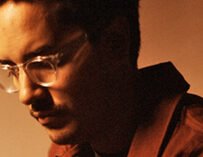
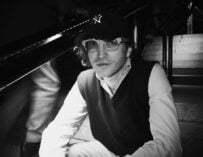
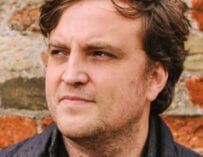



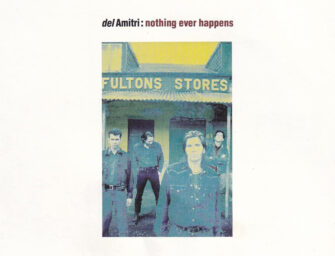

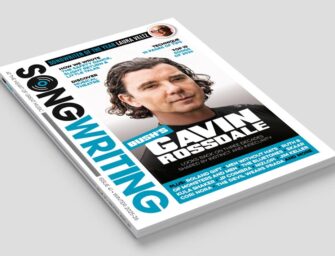
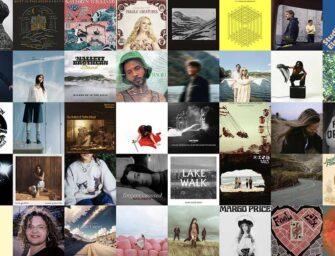





















Related Articles